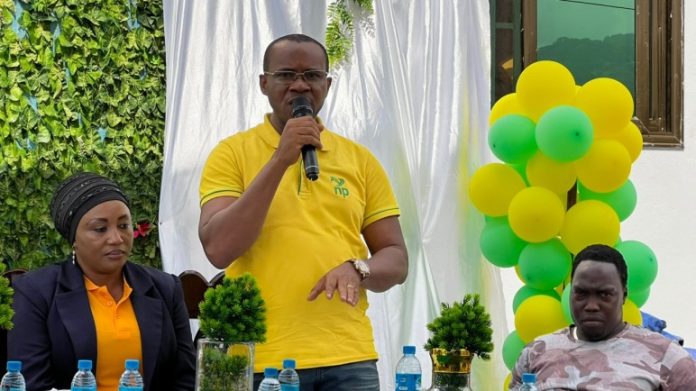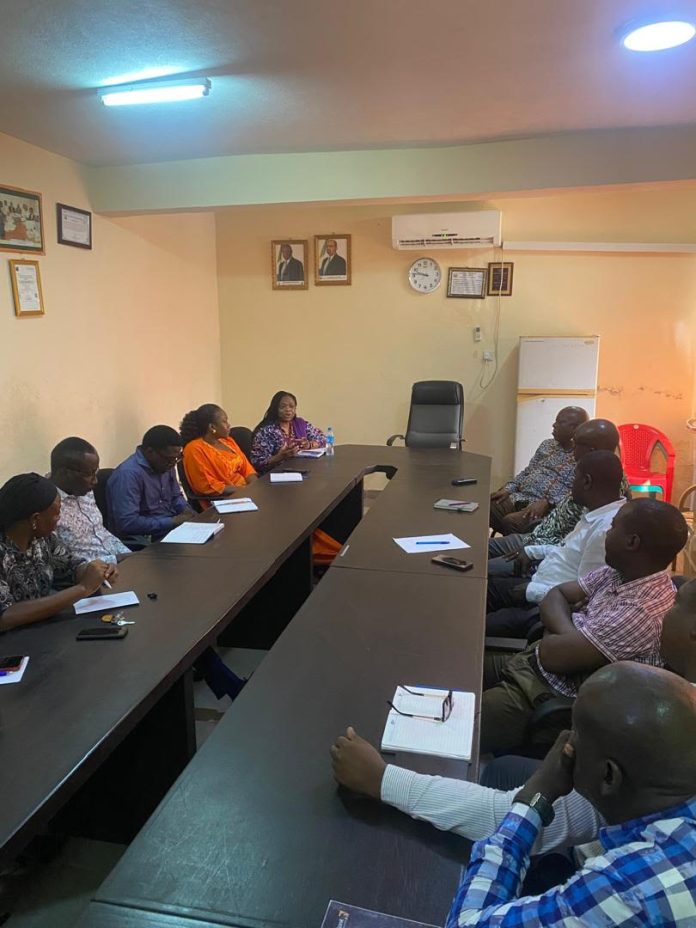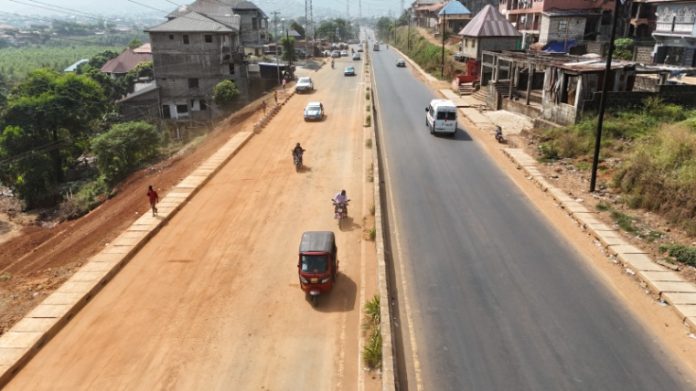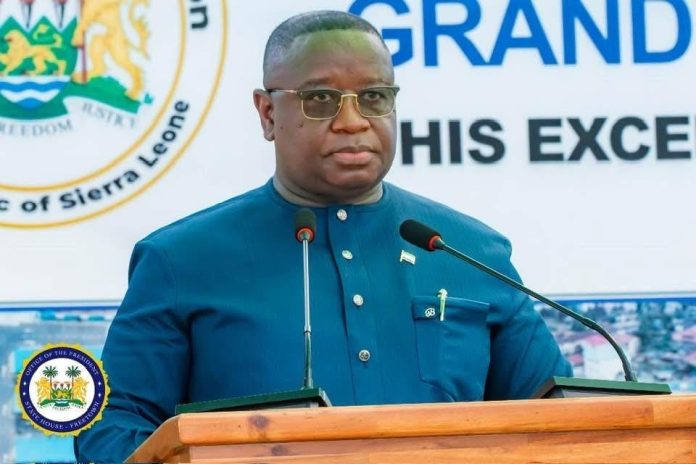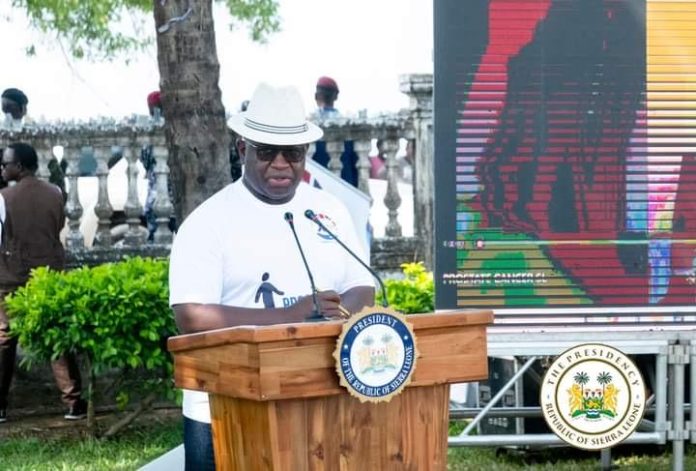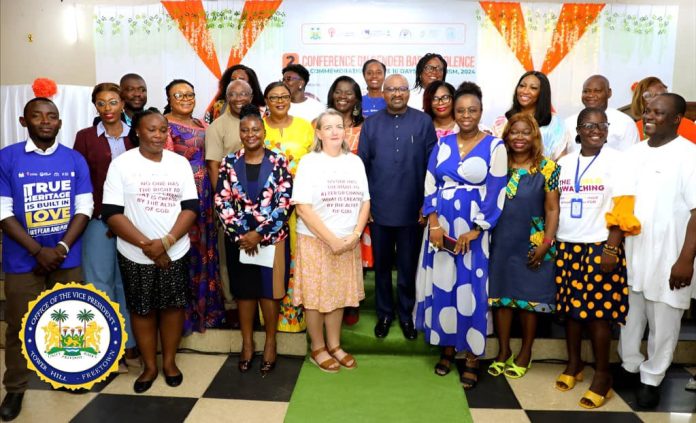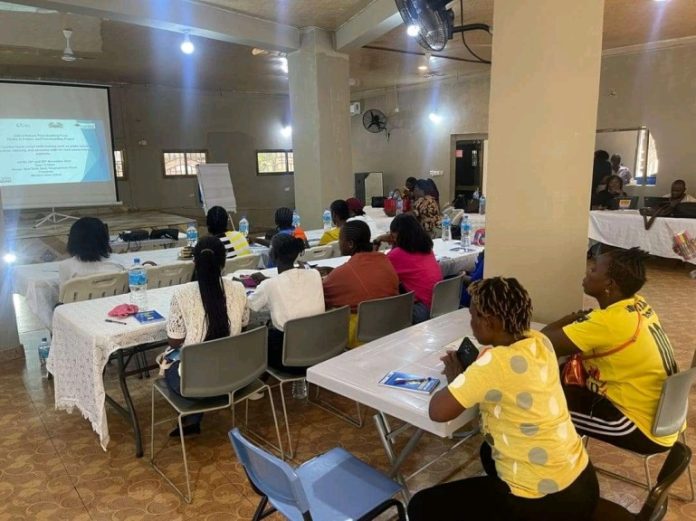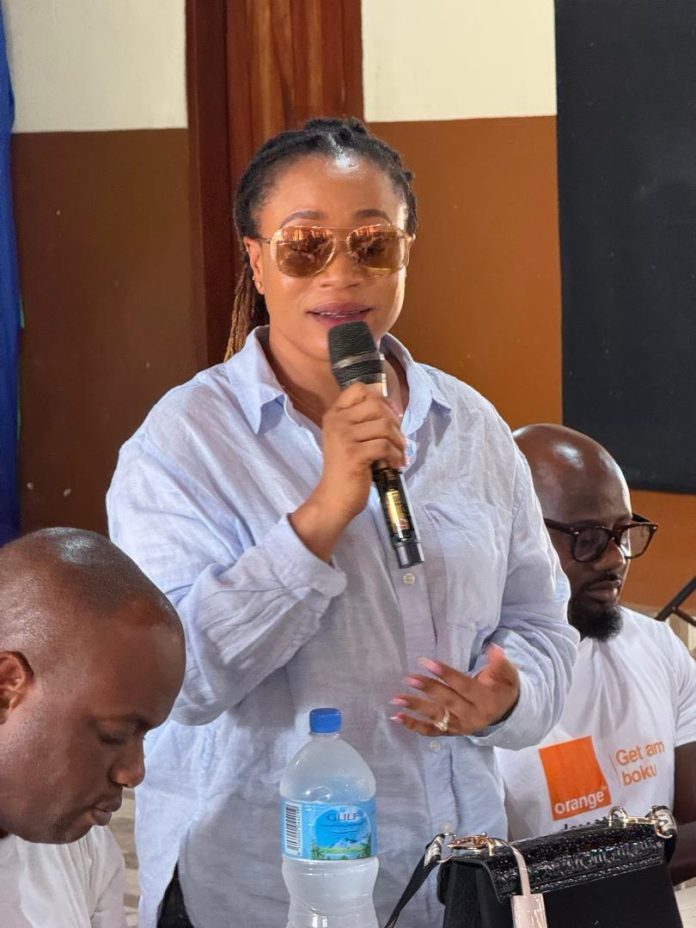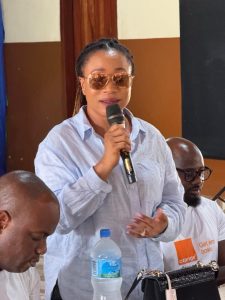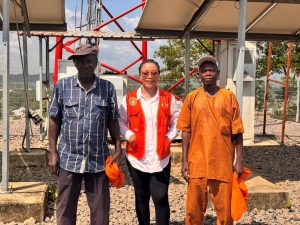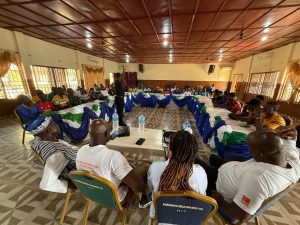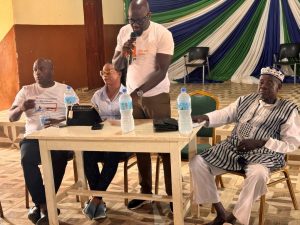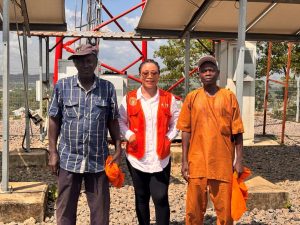By Alvin Lansana Kargbo
NP Sierra Leone Limited (NP-SL Ltd), in collaboration with Dr. Mustapha Tejan Kella and his wife, officially inaugurated Baokasie Services, a state-of-the-art fuel station and mini-mart, on Sunday, November 1, 2024. The event marked a significant milestone for Sierra Leone’s energy and retail sectors, drawing Government officials, business leaders and local residents to celebrate this transformative project.
Situated at Forestry Quarters, No. 2 River, the new facility promises 24/7 fuel accessibility alongside a fully stocked mini-mart, catering to the needs of the growing community. Beyond its advanced infrastructure, the project is set to enhance job creation and local economic growth.
In her keynote address, the Deputy Minister of Trade and Industry, Madam Fatmata Kargbo, praised the project as a beacon of President Julius Maada Bio’s agenda for economic transformation and employment generation. She emphasized its role in fostering healthy market competition and highlighted the introduction of a new pricing formula, developed in partnership with the World Bank, to ensure fuel affordability.
She also spoke on the Government’s commitment to consumer protection, citing the establishment of the National Consumer Protection Commission as a critical step toward ensuring fairness and transparency in the energy sector. “This project exemplifies the power of public-private partnerships in driving national progress,” she noted.
Representing NP Sierra Leone, Sales Manager, Vandy Bockarie reaffirmed the company’s dedication to empowering local communities through strategic collaborations and reliable service delivery.
“NP Sierra Leone is honored to partner with Dr. and Mrs. Kella in establishing Baokasie Services,” he stated. “This venture reflects our mission to ensure accessible, high-quality fuel services across Sierra Leone while contributing to community development.”
Vandi Bockarie highlighted the facility’s potential to stimulate economic growth, from creating employment opportunities to supporting local vendors and improving transportation efficiency. He also assured attendees of NP’s commitment to 24/7 operations, with trained staff ensuring uninterrupted service delivery.
Dr. Mustapha Tejan Kella, CEO of Baokasie Services, expressed his gratitude to NP Sierra Leone and other stakeholders for their support. He shared the vision behind the initiative: to deliver exceptional services, foster meaningful employment and enhance the economic prospects of the No. 2 River community.
“This journey wasn’t without challenges, but with collaboration and determination, we have realized a facility that not only serves this community but contributes to Sierra Leone’s broader economic development,” Dr. Mustapha Tejan Kella said.
Deputy Commissioner General of the National Revenue Authority (NRA), Madam Ann-Marie Harding, highlighted the importance of compliance and taxation in national development. She applauded Baokasie Services’ role in supporting reforms within the fuel-marking system to ensure quality and accountability.
“Baokasie Services is more than a business; it is a partner in building a resilient Sierra Leone,” she said, encouraging other investors to emulate this example of responsible enterprise.
A representative from the Petroleum Regulatory Agency (PRA) lauded the project for aligning with the Government’s energy poverty reduction strategy, which has expanded the number of petrol stations nationwide from 200 to over 470.
John Paul from the Standards Bureau assured attendees that stringent oversight would guarantee accurate fuel distribution at the station, emphasizing trust and quality assurance in every transaction.
With its strategic location, modern amenities and innovative approach to service delivery, Baokasie Services is set to revolutionize fuel and retail services in No. 2 River. It not only addresses critical infrastructure needs but also serves as a model for private-sector-driven growth in Sierra Leone.
The grand opening of Baokasie Services stands as a testament to the power of partnerships and innovation in fostering national development, setting a benchmark for future initiatives in the country.



